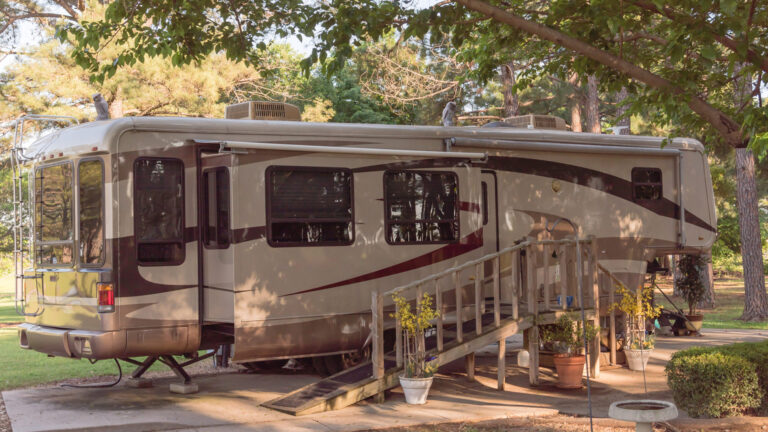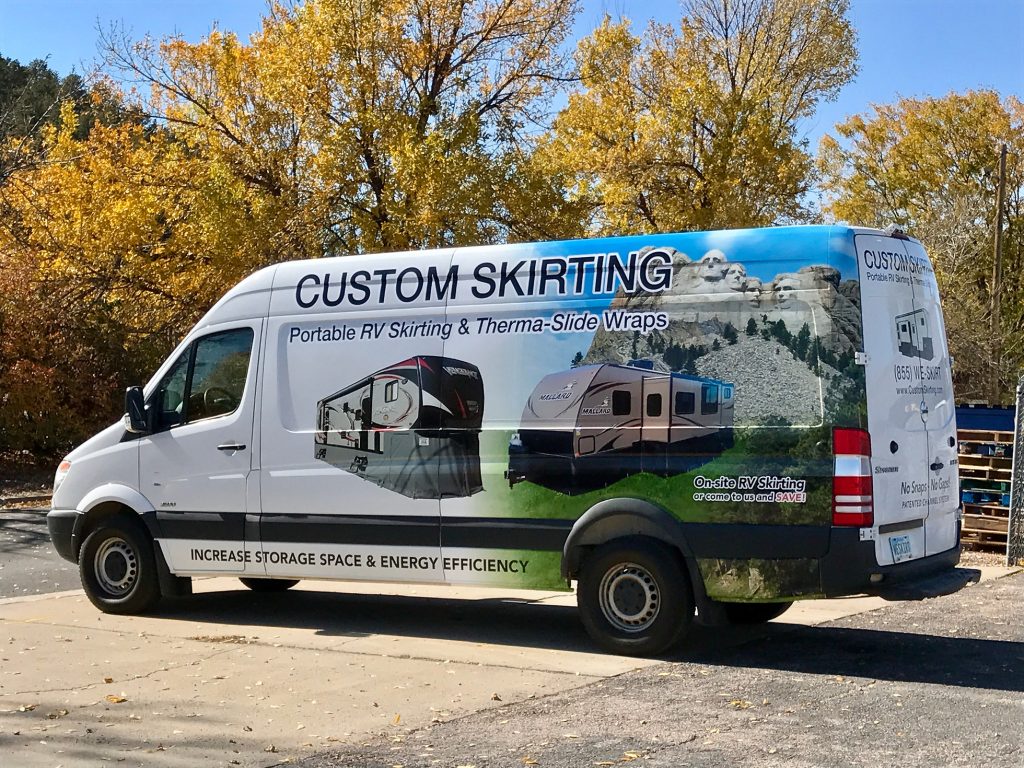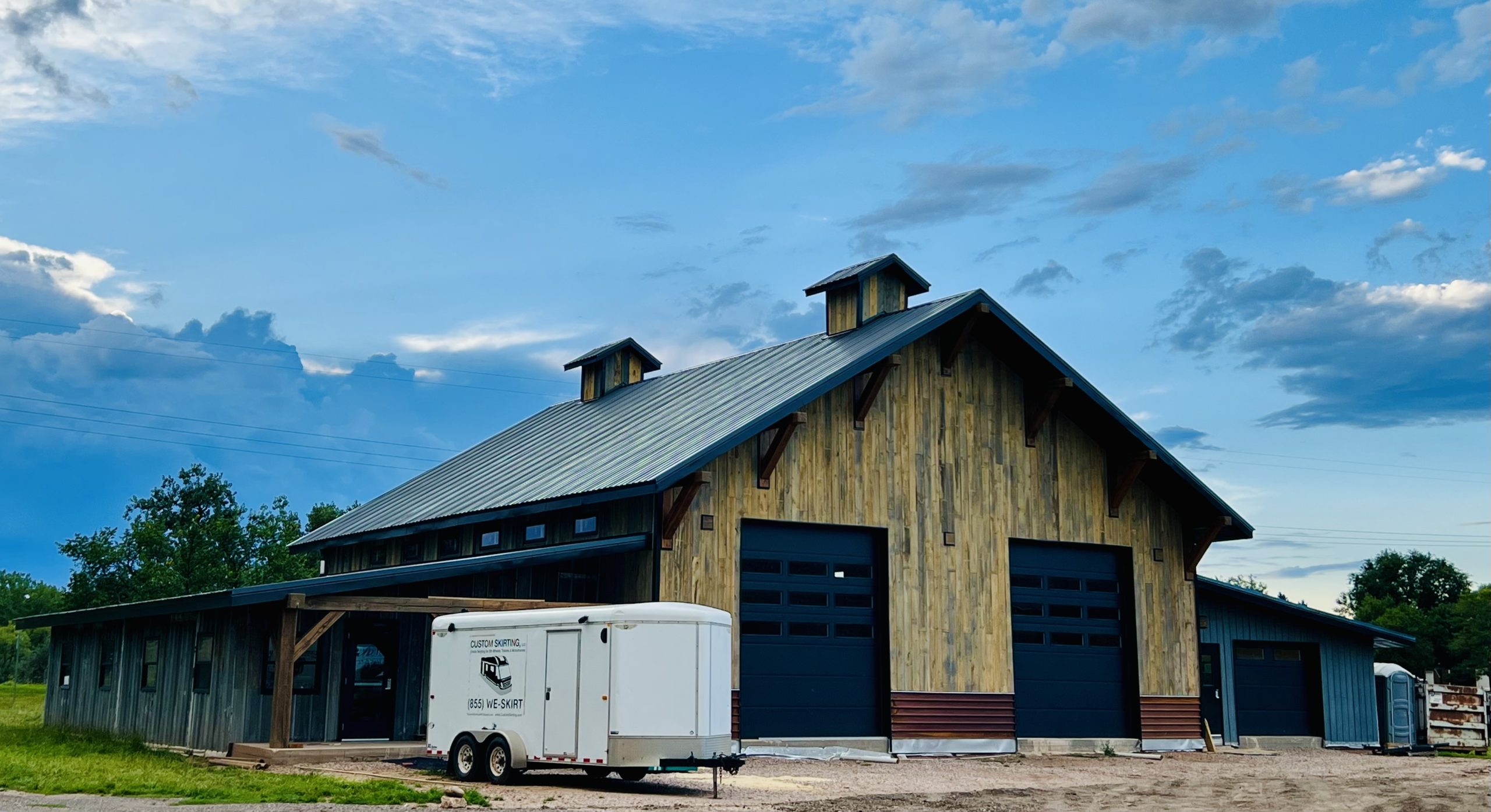Table of contents
As the popularity of RV living continues to grow, many people are exploring the possibility of living in an RV on their own land. Whether you’re drawn to the simplicity, mobility, or cost savings of RV life, understanding the legal and practical considerations is crucial before making this lifestyle change. This comprehensive guide will answer key questions like “How long can you live in an RV on your own land?,” “Can someone live in a camper on my property?” and “How long can someone live in a camper on my property.?” We’ll also explore the benefits and challenges of living in an RV full-time and provide insights into what to expect when embarking on this alternative lifestyle.
Legal Considerations for Living in an RV on Your Property
Federal Regulations
When considering living in an RV on your own land, it’s important to understand how the federal government classifies RVs. According to the U.S. Department of Housing and Urban Development (HUD), RVs are not considered permanent residences but rather recreational vehicles intended for temporary use. This classification has significant implications for how long you can live in an RV on your own land.
HUD regulations specify that RVs are not designed for continuous occupancy, which means that federal guidelines typically restrict the long-term use of RVs as permanent homes. However, these regulations can vary depending on your location and the specific requirements of your state and local governments.
State and Local Laws
State and local laws play a critical role in determining whether you can live in an RV on your own land and for how long. These laws can vary widely from one state to another, with some states having more relaxed regulations and others enforcing stricter rules.
For example, in some rural areas, you might find that local governments are more lenient regarding RV living, especially if your property is zoned for agricultural use. On the other hand, urban and suburban areas may have stricter zoning laws that limit or prohibit living in an RV on private property.
Zoning Regulations
This is another critical factor to consider when determining how long you can live in an RV on your own land. Zoning laws dictate how land can be used within a particular area, and they often distinguish between residential, commercial, and agricultural zones.
If your property is zoned for residential use, there may be specific restrictions on the type of structures that can be used as a primary residence. In some cases, RVs may not meet the criteria for a permanent dwelling, which could limit your ability to live in an RV full-time. However, if your property is zoned for agricultural use, you may have more flexibility to live in an RV, especially if the RV is considered a temporary or seasonal dwelling.
Practical Considerations for Long-Term RV Living
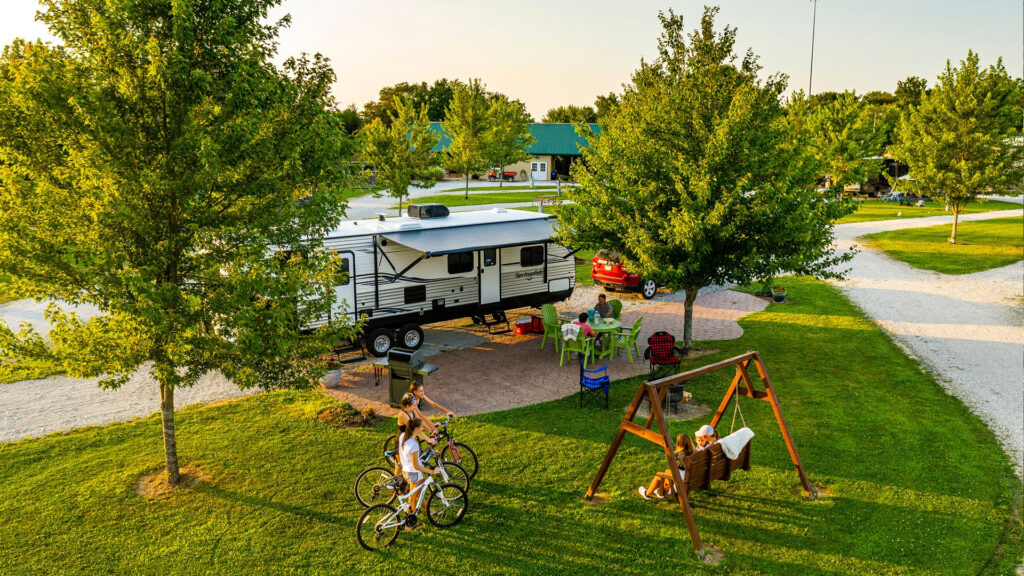
Utility Connections
One of the most critical practical considerations for long-term RV living is ensuring proper utility connections. Unlike short-term camping trips, living in an RV on your own land, or when someone lives in a camper on your property, requires reliable access to utilities such as electricity, water, and sewage disposal.
For electrical power, you may need to install a dedicated RV hookup or connect your RV to an existing power source on your property. If your property is in a rural area, you may need to consider alternative power sources such as solar panels or generators.
Access to clean running water is another essential requirement for long-term RV living. Depending on your property’s location, you may be able to connect to a municipal water supply or install a well. Additionally, proper sewage disposal is crucial to ensure a safe and sanitary living environment. Many RVs are equipped with holding tanks for wastewater, but you’ll need to have a plan for regular disposal, either by connecting to a septic system or using an approved waste management service.
Building and Safety Codes
Living in an RV on your own land may also require compliance with local building and safety codes. These codes are designed to ensure that structures used for habitation meet specific standards for safety and habitability.
When living in an RV long-term, you’ll need to ensure that your RV meets these standards, which may include requirements for heating and cooling systems, protection against mold and pests, and the installation of safety features such as smoke alarms and carbon monoxide detectors.
Some areas may also require that RVs used as permanent residences be anchored to a foundation or have other modifications to meet building codes.
Weather Considerations
Weather is another important factor to consider when living in an RV on your own land. Different climates and weather conditions can have a significant impact on your comfort and safety while living in an RV.
In areas with extreme temperatures, you’ll need to ensure that your RV is properly insulated and equipped with heating and cooling systems capable of maintaining a comfortable interior temperature. Cold climates may also require additional precautions, such as using heat tape to prevent water lines from freezing.
Storms and seasonal changes can also pose challenges for long-term RV living. High winds, heavy rain, and snow can damage your RV or make it difficult to access your property. It’s important to be prepared for these conditions and take steps to protect your RV and ensure your safety during extreme weather events.
Time Limits and Restrictions
Common Time Restrictions
Many local governments impose time limits on how long you can live in an RV on your own land. These restrictions are often intended to prevent RVs from being used as permanent residences in areas where they are not permitted.
Common time restrictions include limits on the number of consecutive days you can live in an RV on your property, such as a 30-day limit. These restrictions may be enforced through regular inspections or in response to complaints from
Obtaining Permits for Extended Stays
If you want to live in an RV on your own land for an extended period, you may be able to obtain a permit or variance from your local government. Permits for extended RV living are often granted on a case-by-case basis, depending on the specific circumstances and local regulations.
To obtain a permit, you may need to provide documentation such as proof of property ownership, a site plan showing the placement of your RV, and evidence that your RV meets building and safety codes. You may also need to demonstrate that you have adequate utility connections and waste disposal systems in place.
Alternatives and Workarounds
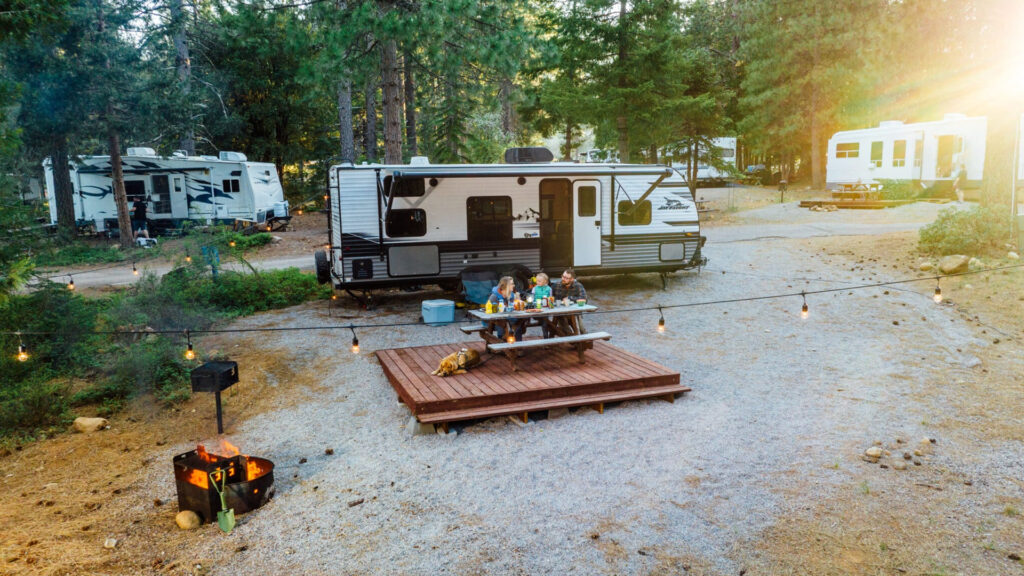
Temporary vs. Permanent Structures
One potential workaround for living in an RV on your own land is to distinguish between temporary and permanent structures. In some areas, RVs are considered temporary structures and may be subject to different regulations than permanent homes.
If you’re planning to live in your RV long-term, you might consider adding a permanent foundation or other modifications that could change its legal status. For example, attaching your RV to a foundation or connecting it to permanent utility systems may allow you to classify it as a permanent dwelling.
Combining RV Living with a Traditional Home
Another option to consider is combining RV living with a traditional home on the same property. For example, you might use your RV as an additional living space, guest house, or home office while continuing to reside in your primary home. This can also help answer the question, “Can someone live in a camper on my property?” by providing a flexible living arrangement that complements your existing home.
This arrangement can offer the benefits of RV living while avoiding some of the legal and practical challenges associated with using an RV as your sole residence. However, it’s important to be aware of any zoning restrictions that may apply to having multiple dwellings on a single property.
Financial Implications
Property Taxes and Insurance
Living in an RV on your own land can have financial implications, particularly concerning property taxes and insurance. Depending on how your RV is classified, you may be required to pay property taxes on it as a permanent dwelling. This can increase your overall property tax bill, especially if your RV is considered a valuable asset.
Insurance is another important consideration. While traditional homeowners’ insurance policies may not cover RVs, you’ll need to obtain specialized RV insurance that provides coverage for both your vehicle and your personal belongings.
Cost of Compliance
Meeting legal requirements for long-term RV living can also involve significant costs. For example, installing utility connections, obtaining permits, and making necessary modifications to your RV can all add up. It’s important to budget for these expenses and factor them into your overall cost of living.
Start Your South Dakota Adventure Today!
Planning to live in an RV on your own land? Why not take a break and explore the beauty of South Dakota before settling in? Book your stay at Black Hawk Creek RV Park—the perfect starting point for your next adventure! Located near iconic attractions like Mount Rushmore and the Badlands, Black Hawk Creek RV Park offers all the amenities you need for a relaxing and memorable stay. Reserve your spot today and experience the best of South Dakota!



